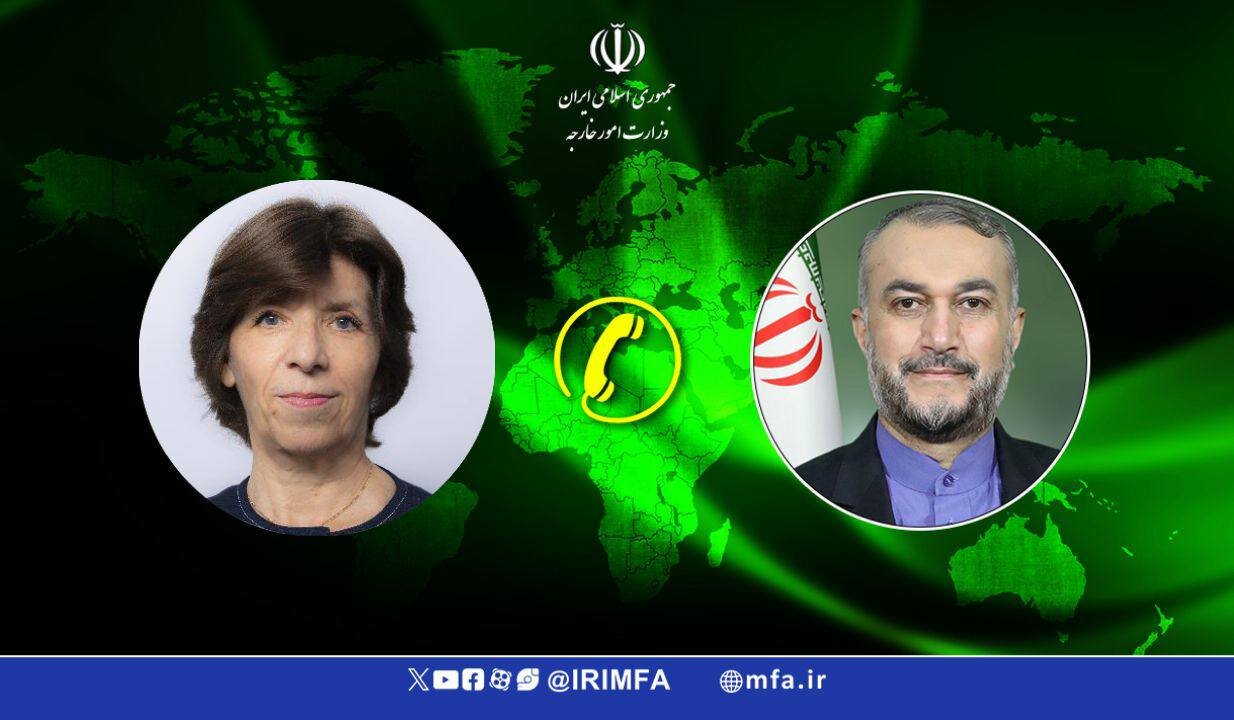Iran calls for intl. cooperation to effectively prevent terrorism

TEHRAN- The foreign minister of Iran has demanded that the world community should step up its efforts to combat terrorism in all of its manifestations.
On Saturday, Hossein Amir Abdollahian was on the phone with Catherine Colonna, his counterpart from France.
Iran’s top diplomat referred to the recent terrorist incident that occurred in the southern Iranian city of Kerman, which resulted in hundreds of deaths or injuries, and emphasized the need for heightened efforts by the international community to combat all kinds of terrorism in a more practical and efficient way.
“Iran is the most honest supporter of security and stability in the region and the world,” Amir Abdollahian added.
The Iranian foreign minister mentioned France’s actions with the Palestine issue and the end of the Israeli regime’s genocide in Gaza in other parts of his remarks.
According to Amir Abdollahian, the only way to put an end to the bloodshed in the region is to take concrete measures to halt the killing of civilians, make it easier for humanitarian supplies to reach Gaza, cease the forcible relocation of Gaza’s population, and allow Palestinians to decide their own future via democratic processes.
He continued, “The only way to prevent further spread of conflicts in the region and establish lasting peace is paying due attention to root causes of the existing challenges and having serious resolve to do away with them.”
The Iranian foreign minister said the occupying regime of Israel and the United States are behind the ongoing genocide in Gaza, adding, “You cannot eliminate the root causes of instability in the region and express concern about the security in the Red Sea and West Asia region without taking the Israeli occupation into account.”
“The security of Gaza, the occupied West Bank, and the entire region are interconnected,” Amir Abdollahian said, asserting, “War is not the solution.”
The French foreign minister, for her part, reaffirmed Paris’ denunciation of the terrorist incident in Kerman.
She expressed worry about the rising tensions in the region and asked Iran to do its part to stop the issues from getting worse.
Last month, Paris called for an immediate ceasefire in the regime’s onslaught on Gaza, which was launched on October 7 following Operation al-Aqsa Storm by the territory’s resistance groups.
On Tuesday, Abdollahian stated that U.S. lawmakers are stuck in a “quagmire” in the besieged region, making it expensive for them to escape, since they are supporting the Israeli regime in its “genocidal campaign” against the Gaza Strip.
He also noted that the U.S. is “facing a challenge” and is searching for a “face-saving option” to exit the Gaza conflict.
“Today the politicians in the White House are facing a serious challenge. Some believe that Washington has gone too far and should not have provided full support for Israel’s genocide and crimes over the past three months in Gaza and the West Bank,” he said.
The terrorist explosions, which were claimed by the U.S.-backed Daesh group, were carried out near the burial site of Iran’s late anti-terror commander Lieutenant General Qassem Soleimani during a ceremony marking the fourth anniversary of his martyrdom. The blasts left 91 people dead and wounded 286 others, some of them in critical condition.
The Israeli aggression has so far claimed the lives of more than 22,700 people, most of them women and children.
The United States has long maintained a steadfast alliance with the Tel Aviv regime, a strategic partner that shares values and aligns with American interests in the region.
This unwavering support has taken on a heightened significance in recent months, with the United States intensifying its backing of Israel in unprecedented ways.
Since October 7, the United States has stepped up its support for Israel at various levels, demonstrating the depth of the Washington-Tel Aviv strategic partnership.
The U.S. has bolstered Israel's war capabilities amidst the escalating conflict in the Gaza Strip.
Washington’s unwavering support for the occupation regime has also drawn worldwide criticism. Such unconditional support undermines efforts to achieve peace in the region.
